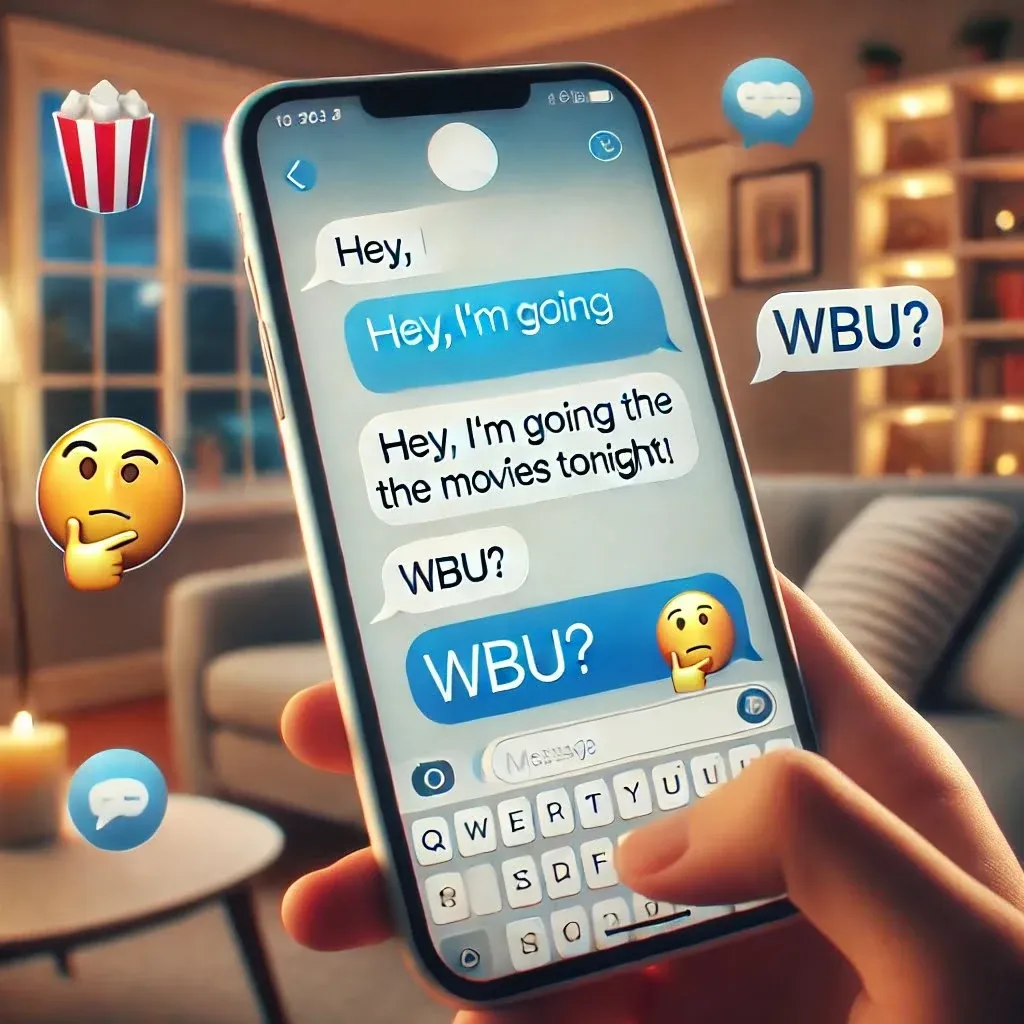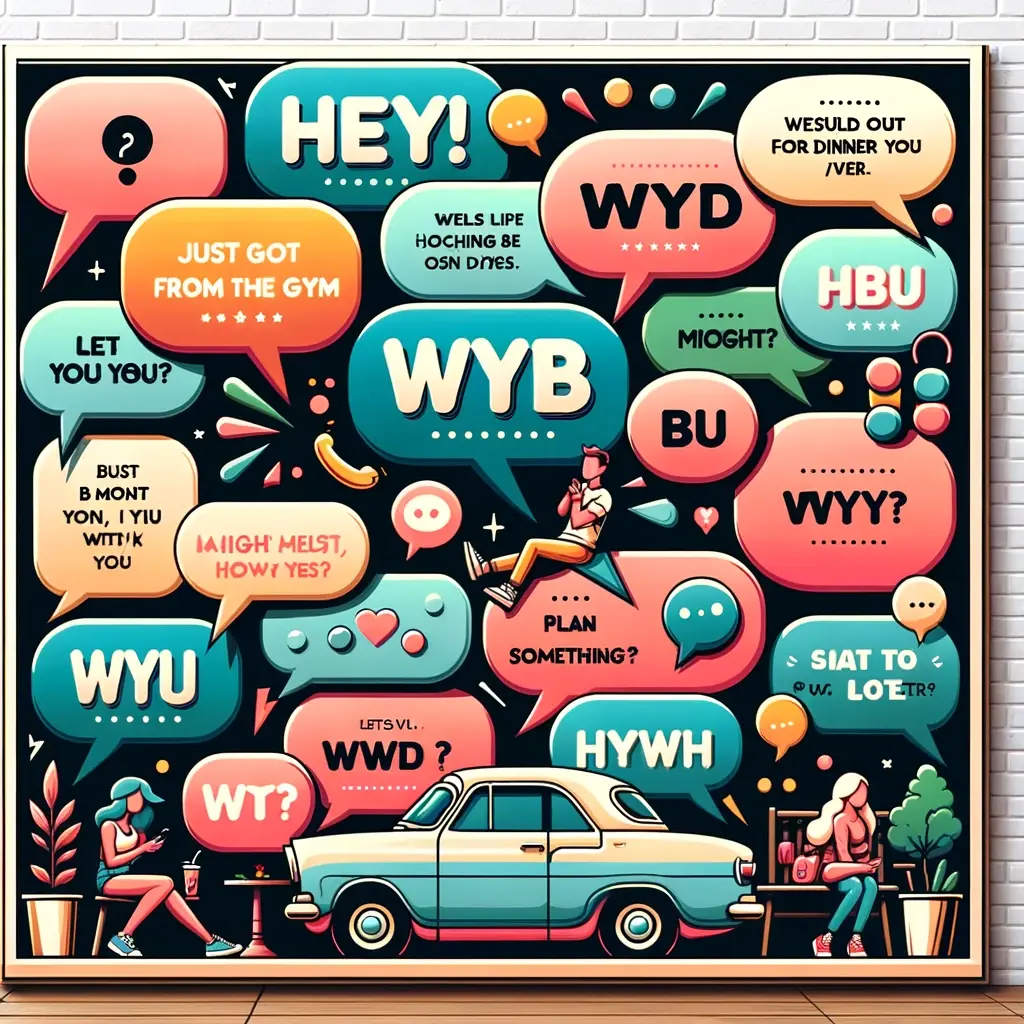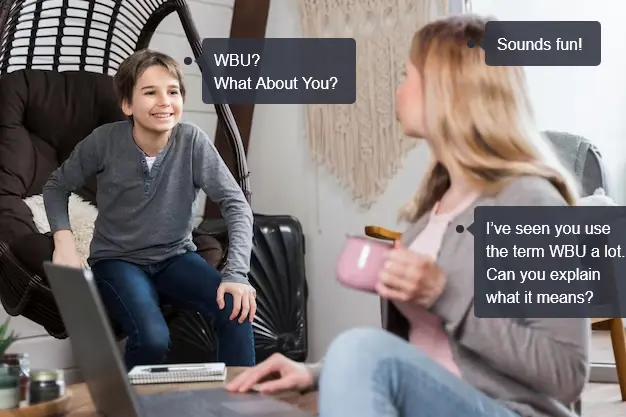What does WBU mean? Origin, Extension, Use Cases & More

Last updated:7月 29, 2024
Table of content
Part 1. What does WBU mean
Imagine this: you're texting a friend about your weekend plans, and they shoot back, “Sounds fun! WBU?” WBU or “What About You? This is a quick and casual way to pivot the conversation back to the other person, showing interest in their activities or feelings. Think of it as a digital shorthand that keeps conversations flowing smoothly and efficiently.
Occasionally, you might also see WBU written as WBY. While this variation isn’t as common, it essentially means the same thing. Both versions serve the purpose of engaging with the other person and are part of the evolving landscape of online slang.
Part 2. Origin of WBU slang
The rise of acronyms like WBU can be traced back to the early days of texting, when every character counted. As we moved from flip phones with tiny keypads to smartphones, the need for brevity remained, fueling the development of these shorthand expressions.
WBU emerged as part of this trend, designed to make conversations quicker and more efficient without losing the personal touch. The phenomenon of using acronyms in digital communication reflects a broader shift towards faster, more informal interactions.
As people began to embrace the convenience of texting and online chatting, the need for speed gave birth to a whole new lexicon. WBU and its kin are the product of this fast-paced, ever-evolving communication style.
Part 3. Extension of WBU slang
Beyond WBU, the digital world is brimming with similar expressions that spice up conversations. Here are a few to keep your texting game strong:
- WYD/WYB: Short for “What You Doing?” or “What You Been?”— mean what someone’s up to.
- HBU: Standing for “How About You?” This slang is usually used as an alternative to WBU.
- WYAT/WUU2: “What You At?” or “What You Up To?” Used to know someone’s next plan.
- HWU: “How ‘Bout You?” This means, what’s going on with your buddy.
- WYWH: “Wish You Were Here.” Though it’s slightly different, this one expresses a sentiment of missing someone, adding a touch of emotional depth.
Each of these acronyms adds a unique spin to digital dialogues, making online interactions more vibrant and engaging. They highlight how creativity and efficiency come together in the digital age, transforming the way we connect with each other.
Part 4. How do teenagers use WBU slang? Examples
In a world where text messages and social media posts are the norm, WBU serves as a casual way to check in with friends after sharing something about oneself.
Consider a typical chat between teens:
- Friend 1: “Yesterday I visited a newly opened bar beside our college. What a vibe this place has!
- Friend 2: “Nice! WBU?”
Here, WBU seamlessly shifts the focus back to the friend, inviting them to share their own news or experiences. It’s a friendly, informal way of keeping the conversation balanced and engaging.
Moreover, WBU can be used with other slang. For instance:
- Friend 1: “I’m heading to the mall later. What about you?”
- Friend 2: “I’m just chilling at home. WYD?”
In this exchange, WBU could easily be replaced with WYD (“What You Doing?”), showcasing how various acronyms can interact in real-time conversations. These abbreviations help keep discussions brisk and lively, perfectly suited to the fast-paced nature of teenage texting.
Part 5. How to talk with your child about WBU
- Start with Curiosity: Approach the topic with a genuine interest rather than judgment. You might say, “I’ve seen you use the term WBU a lot. Can you explain what it means?”
- Use It in Context: Incorporate WBU into your conversation naturally. For example, you could text your child, “I’m planning to cook dinner tonight. WBU?”
- Discuss the Balance: Explain that while abbreviations like WBU are handy for quick chats, it’s also important to use proper language in different settings. You might say, “Using WBU with friends is fine, but in formal situations like school or job applications, full sentences are important.”
- Ask for Their Input: Show that you value their perspective by asking them to share other slang terms they use. This not only helps you stay updated but also makes your child feel heard and respected. You might ask, “What other short forms do you and your mats use? How do you decide when to use them?”
- Emphasize Clear Communication: Reinforce the importance of clear communication in various contexts. Explain that while abbreviations are fun and efficient, clarity is key in professional or academic settings. For example, “It’s cool to use WBU in a text, but when writing a report or communicating on a serious subject, clear language helps avoid confusion.”
- Be Open-Minded: Show an open attitude towards new slang and digital communication trends. This will encourage your child to talk more openly about their online life. You can say, ‘’by the ways these slangs save a lot of time while chatting, I would love to learn more slangs as well’’
- Keep the Conversation Light: Make the discussion about slang and texting habits informal and relaxed. This will help your child feel comfortable sharing without feeling pressured. You could use humor, like, “I guess I’m getting old if I need a dictionary for your text messages!”
By approaching the topic with understanding and curiosity, you’ll foster a positive dialogue about digital communication and maintain a strong connection with your child.
Part 6. Final Words
WBU is more than just a texting shorthand; it’s a snapshot of how digital communication evolves. From its origins in the early days of texting to its role in modern conversations, WBU exemplifies how acronyms streamline interactions. By understanding these terms and discussing them openly with your child, you can bridge the generational gap and foster meaningful communication.
More Articles Like This



